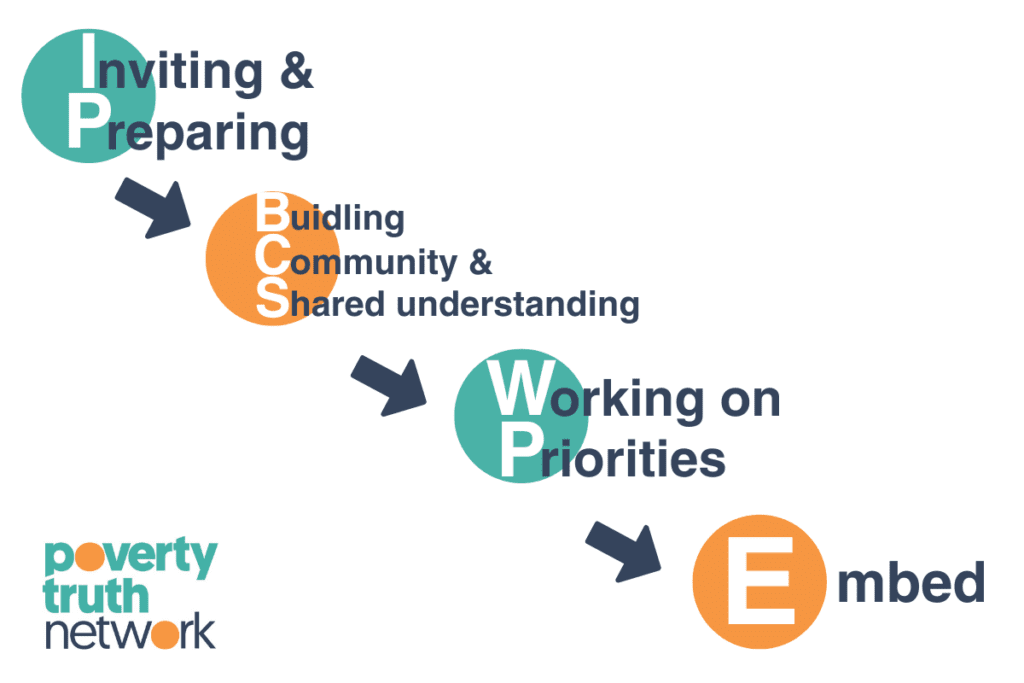Poverty Truth Commissions, seek to discover the answer to the question, ‘what if people who struggled against poverty were involved in making decisions about tackling poverty?’ The commissioners for each Commission comprise two groups of people. Around half of the commissioners are people with a lived experience of the struggle against poverty. The other half are leaders within the city or region. Collectively they work to understand the nature of poverty, what are some of the underlying issues that create poverty and explore creative ways of addressing them.
A Poverty Truth Commissions is made up of 4 phases

Phase 1 – INVITING & PREPARING
Identify, recruit and support people who experience poverty to participate as community commissioners. Phase 1 culminates in a high-profile public launch event where the community commissioners present some of their experiences and wisdom.
Phase 2 – BUILDING COMMUNITY & SHARED UNDERSTANDING
After the public launch Community and Civic commissioners begin to meet regularly to build relationships with one another. During this period a shared understanding of poverty is developed that identifies the specific themes commissioners would like to work on together.
Phase 3 – WORKING ON AGREED PRIORITIES
The commission dig deeper into the issue and start to co-create solutions within each of the priorities.
Phase 4 – EMBED
The Commission reports on its work through a second large public event. Work continues locally to embed recommendations and learnings from the commission.